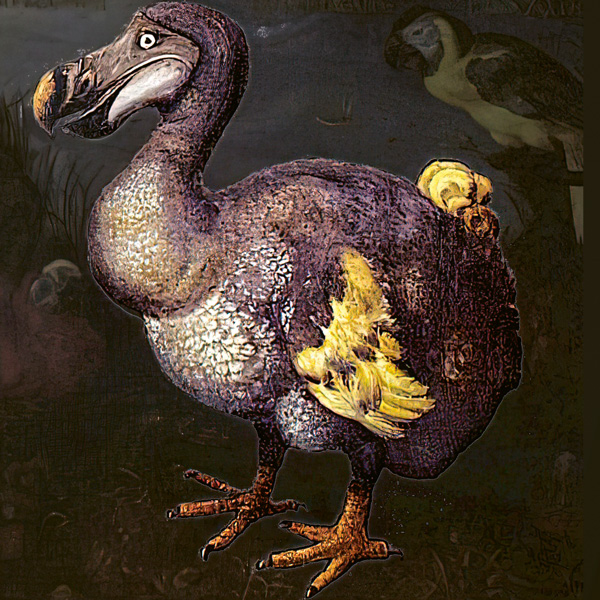Portrait
Oliver Müller: From underdog to rock star of astronomy
He was a mediocre student at school who dreamed of becoming a rock guitarist. But he later caused an uproar when he revolutionised a standard model of cosmology: Oliver Müller, astronomer and communicator of complex matter.

Oliver Müller used to be pigeon-holed along with conspiracy theorists. But then people read his doctoral thesis about dwarf galaxies. | Image: Christian Grund
“How did it all come about?”, he sometimes asks himself, shaking his head, as he sits on his couch with his laptop on his knees and stars on his mind. “How?”. When Oliver Müller used to dream of being famous, he imagined he’d be on the world’s stages as a rock star, smashing guitars at the end of a show. Another passion of his was painting. Today, Müller often works from home in his pyjamas – which means he can get out of bed and straight into the world of matter. Perhaps he hasn’t got the time or space to get dressed first. Or perhaps it’s because pyjamas are ideal to wear when studying photos of the night sky. Oliver Müller is an astronomer. And he’s become famous anyway.
He says things such as: “Dark matter? Maybe it doesn’t exist”, he debunks the life’s work of colleagues, and he attacks the standard model of cosmology and thus also the theories of Albert Einstein. His research has meant Müller was long regarded as an underdog, and he was pigeon-holed along with many a conspiracy theorist. That was until his doctoral dissertation caught people’s notice. He was able to show that dwarf galaxies do not always orbit chaotically around their main axis – which is what the standard model predicts, and what supercomputers have calculated – but can unexpectedly do so in an ordered manner, like on a children’s carousel. Researchers had already observed that dwarf galaxies in the Milky Way don’t function according to current assumptions. But it was only Müller who was able to prove that this is more than just a curiosity of our galactic system.
Waking up
If you ask him about the prize he won, Oliver Müller smiles and asks: “Which one?”. And he has indeed been given a whole series of awards, including the Prix Schläfli in Astronomy by the Swiss Academy of Sciences and the KlarText Prize for Science Communication (see box below). “The appreciation is what’s nicest about it. The personal act of being awarded something”, he says. Sometimes, however, it gets too much for him. He’s even made it to the cover of Science. But then he just starts to wonder again why his work should have happened to garner so much attention.
It was hardly expected. Oliver Müller was a poor student at school. He wasn’t just weak in sports or handicrafts, like math geniuses often like to claim. He was simply “really bad”, as he says himself. “I had difficulty both getting into grammar school, and passing my final exams”. He doesn’t like reminiscing about his schooldays: “I was afraid of the teachers. Some of them said: ‘You’re stupid’. They’d say: ‘Oliver, you got a good mark in your test – you only failed badly this time’”.
But Müller managed to squeeze through, and decided he wanted to become a teacher himself. Because he liked explaining things, because he wanted to do it better, and perhaps also because nothing else occurred to him, and the careers advice service suggested it. Math and history were his chosen topics: his heart said history, but math was better for his job prospects. “Two worlds now collided. In history, they mostly just discussed things. But in math, everything was straight in your face: There’s the board, there’s the formulas. I liked that precise way of thinking”. Nevertheless, he failed math in his first year at university. “The professor said to me: ‘You could do this. I’m failing you, but now go away and learn it properly’”. He’s grateful to that professor to this day. “Otherwise, it could have gone on for ever like that”.
Keeping going
The simplest way of getting rid of the unloved subject ‘history’ without losing time was to switch to physics. Müller then did an internship in astronomy. “The theory barely interested me back then. But the nights: Wow!”. As a city boy, Oliver Müller now saw the Milky Way for the first-ever time. “That was like a calling”. And his enthusiasm has never diminished. “It makes me productive and creative. You don’t have to be a genius”. But there are a lot of good studies that haven’t been noticed. “Translating formulas into words is difficult. But what’s the use of science if we can’t communicate it in a comprehensible form?”. He turned his weaknesses into strengths: He practised writing through his popular science blog about astronomical topics. His experience in combat sports taught him how to fight his way through. His music taught him how to stand up before a crowd. But most of all, he learnt how to be courageous and to go out on a limb. “Today, I’m an extrovert introvert”, he laughs.
But he soon becomes contemplative again. “I’m not afraid of the big names. They have experience, but no one knows everything. For me, when I experience a headwind, it’s a motivating factor. Surely if you trigger emotions, then you must be on the right path?”. Professional circles advised him against basing his career on studying the galactic problem of dwarf galaxies. People scrapped seminars because of him, and refused any contact with him. “There are people who are angry at me because I’ve disproved their work”. But he can’t understand this – that’s how science works! Sometimes, he says, an older generation has to step down before new ideas can find broad acceptance. “I want to initiate the next steps”, he says.
Handing over the baton
There’s still more than enough for future generations to research. Observing dwarf galaxies is still in its infancy. Finding them is difficult because they glow so dimly and are difficult to see through the Earth’s atmosphere.
Often, Müller is dependent on giant telescopes, up to ten metres long. Using these telescopes is expensive – one minute on them costs about USD 100 – so researchers themselves don’t actually steer them. Müller leaves setting them up to the experts. After one night, they then send him a package of data that takes months or even years to analyse on his computer. His research team generally works with the naked eye, though this is seen as being less ‘scientific’ today, as Müller explains: “The software is quicker, of course. But I’m better”. He offers a comparison: The best program at present has tracked down 5,000 potential dwarf galaxies. But only one of them was correctly identified. “With the naked eye, I’ve found three. We can detect even inconspicuous galaxies in the ‘noisy’ photographs of the night sky better than any software”.
His enthusiasm is infectious. He’s a scientist, a teacher, quite the rock star, and he has his own stage now: “Astronomy is one of the most beautiful things you can use to get others interested in the natural sciences. The stars and the Universe fascinate people all over the world. And I’ve experienced it myself: only when your enthusiasm is awakened does everything click”.
Oliver Müller was born in Basel in 1989. It was during his study of physics at university that he discovered his enthusiasm for the stars, and he subsequently took his doctorate with a thesis about dwarf galaxies. This won him the Amerbach Prize for the best doctoral thesis at his university, the Edith Alice Müller Prize of the Swiss Astronomical Society, and the Prix Schläfli in Astronomy of the Swiss Academy of Sciences.
The passionate guitarist and sword-fighter is currently researching into the Universe’s smallest galaxies at the University of Strasbourg, with a scholarship from the Swiss National Science Foundation. But the high-flying stargazer is also down-to-earth: as the author of the blog ‘The prose of astronomy’, he translates formulas into words, thereby making science accessible to everyone. For this, he has been awarded the German KlarText Prize for Science Communication.




